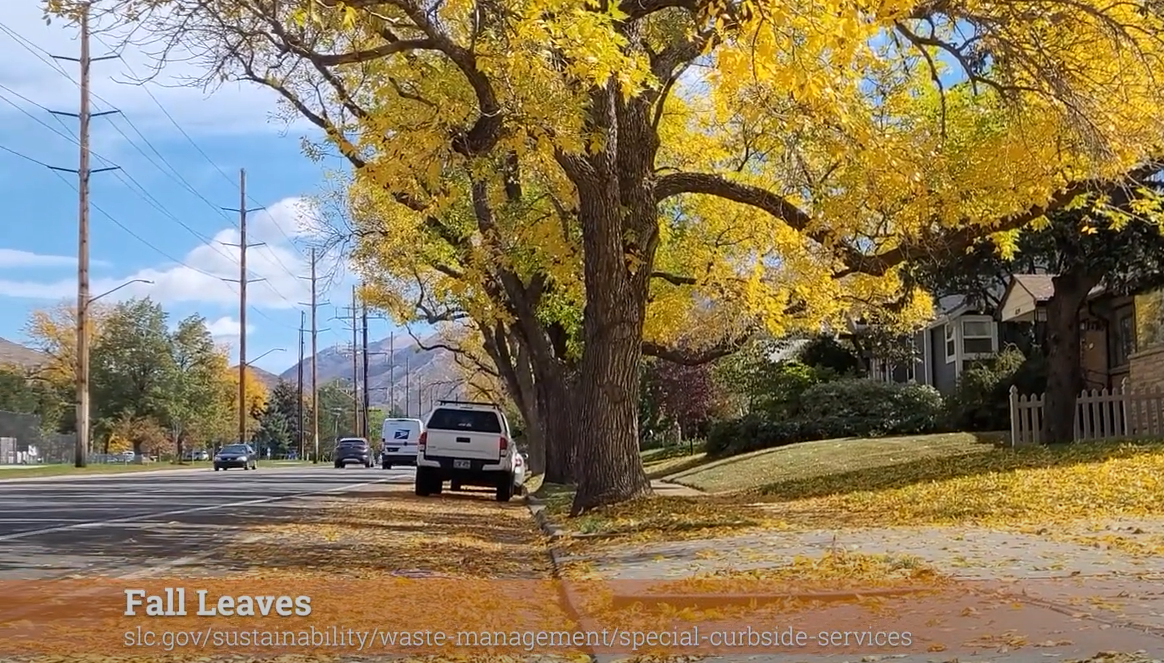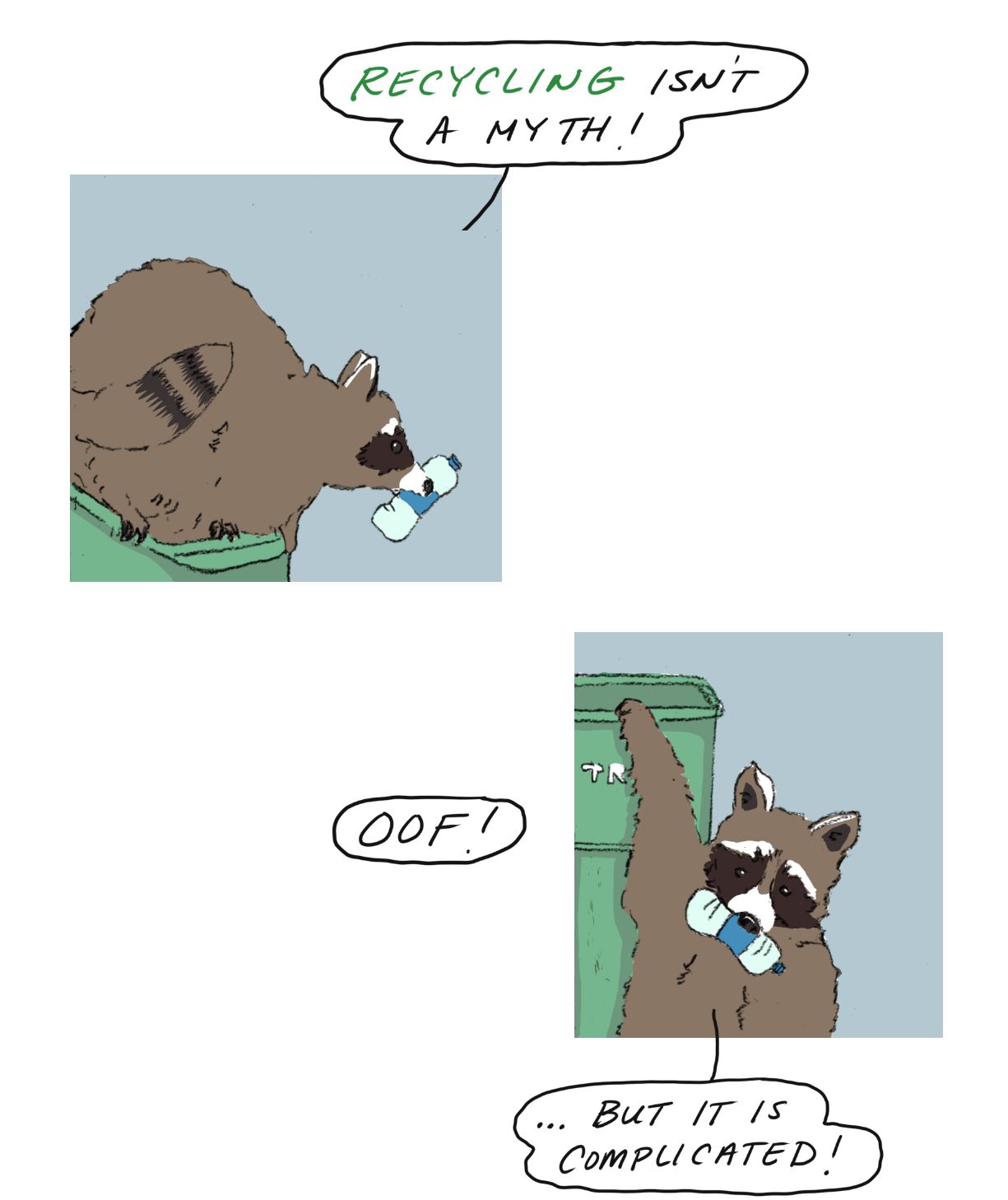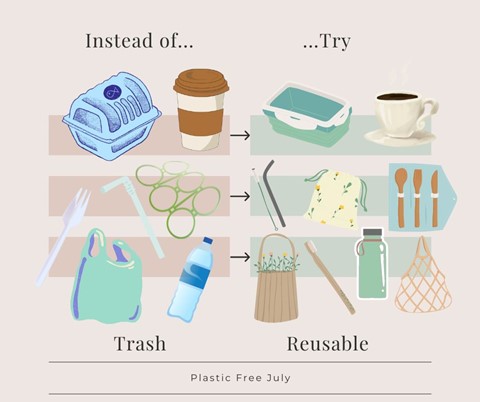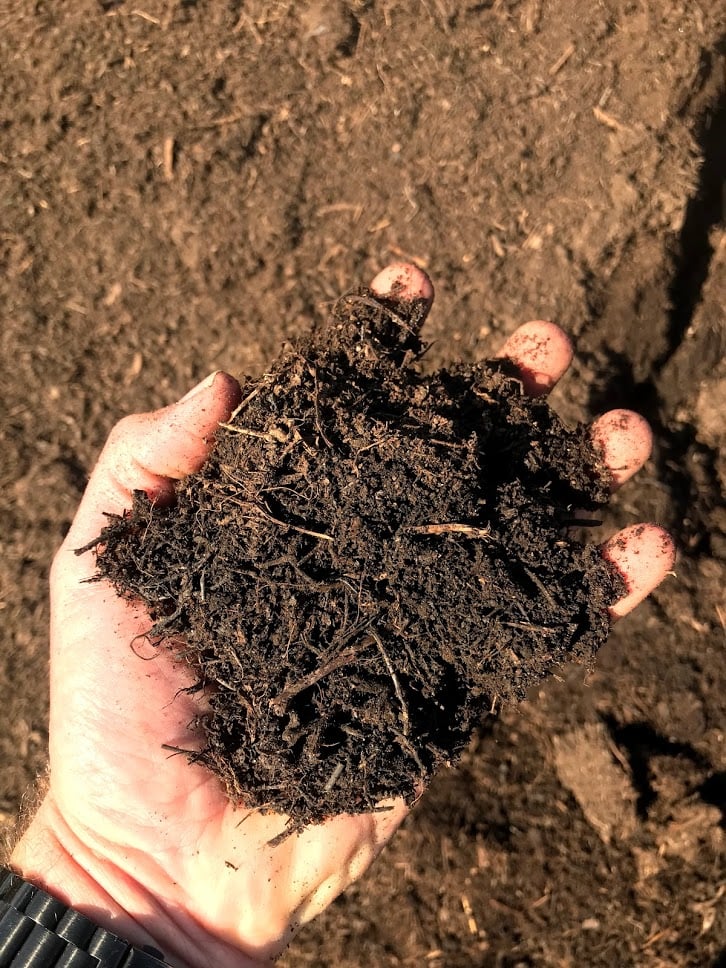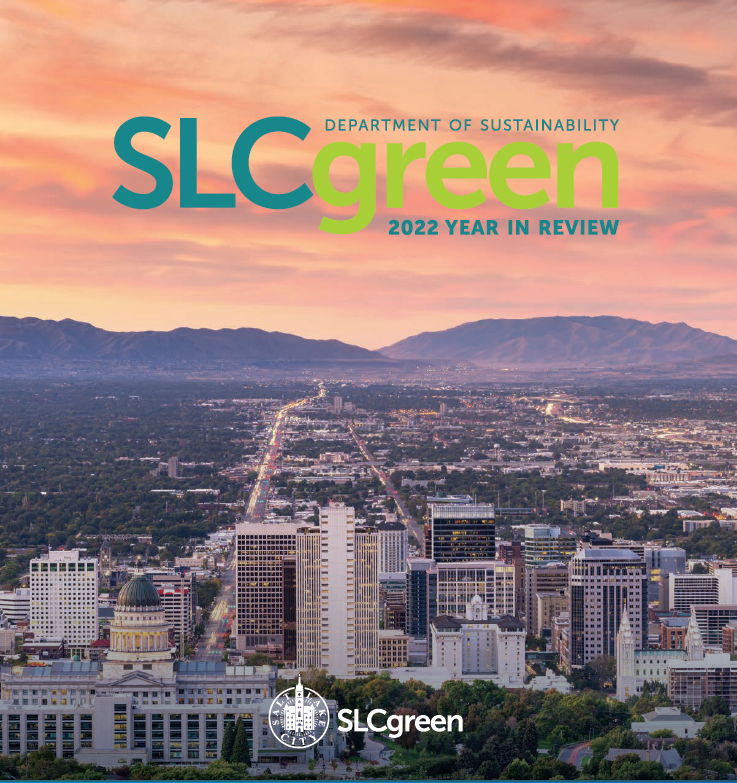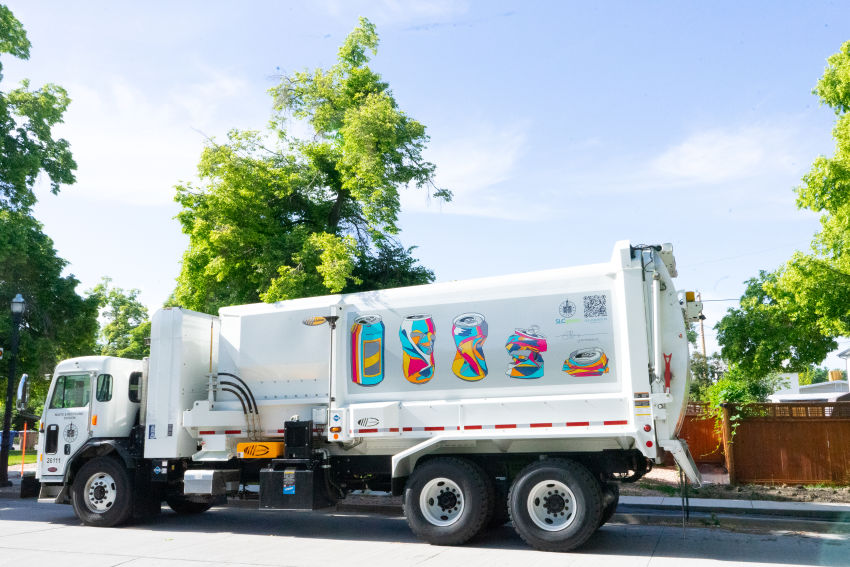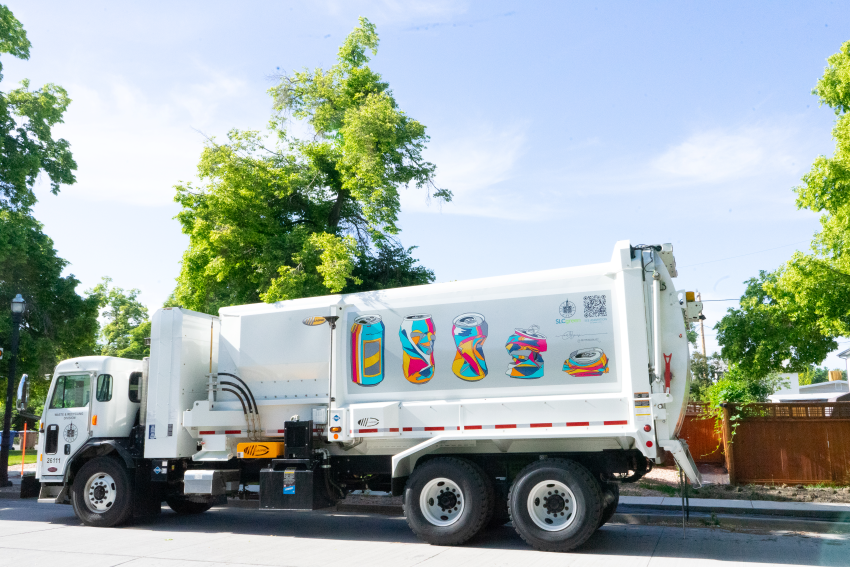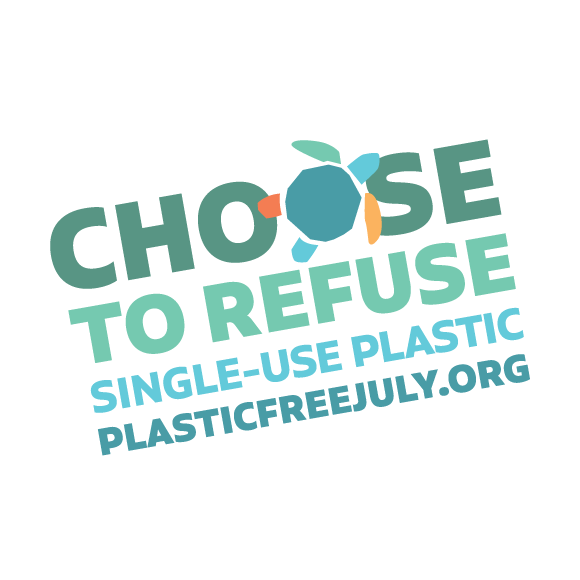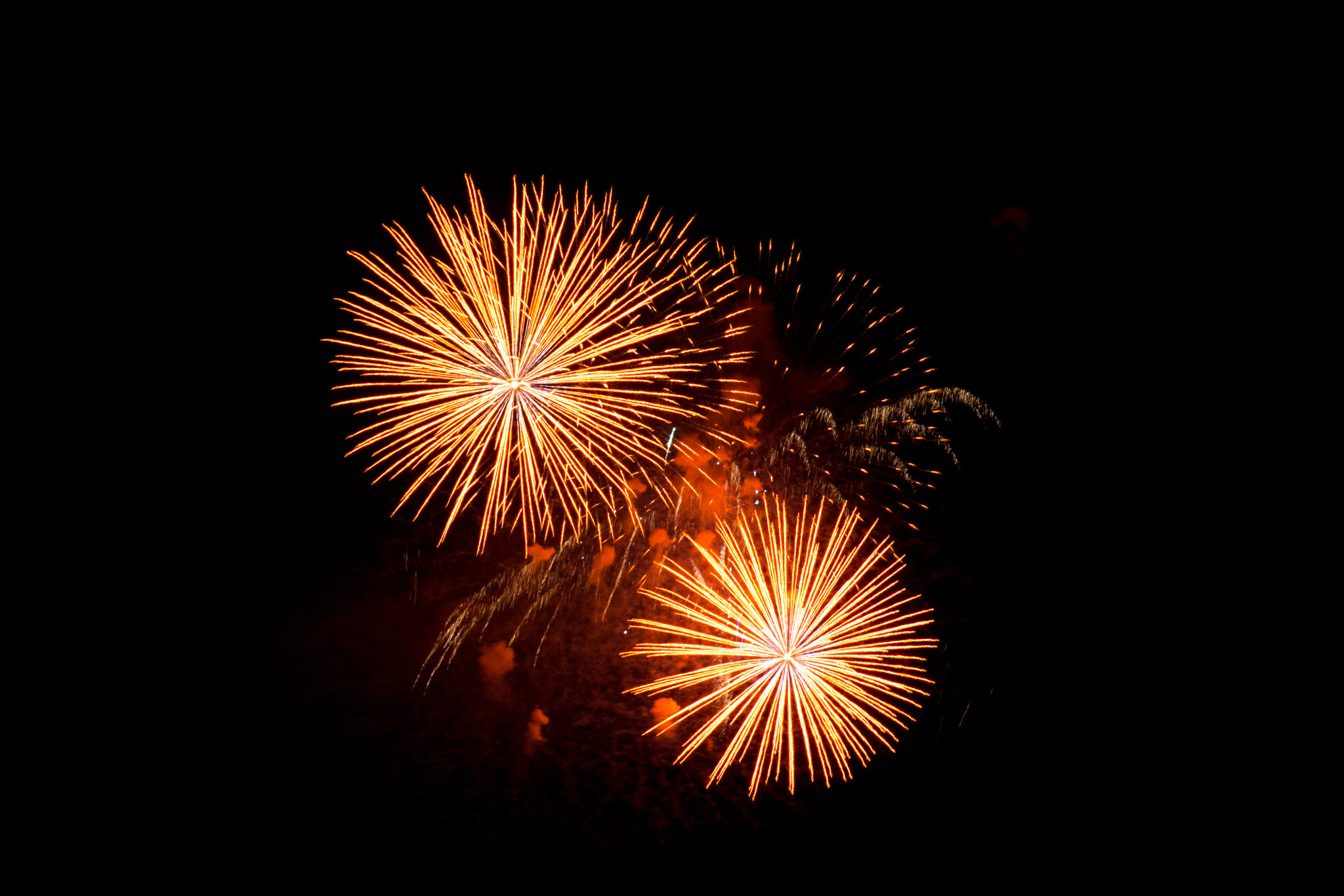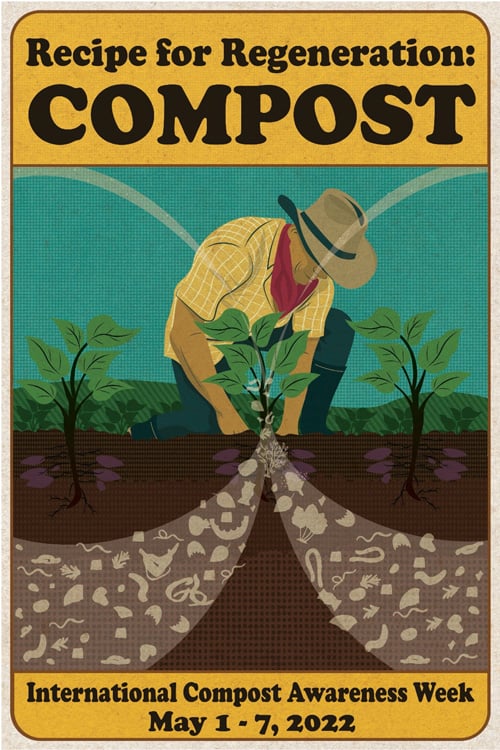by SLCgreen intern Mariah Trujillo
The sun is shining and inviting us outside for barbecues, picnics, and other festive get-togethers.
As the focus of our minds shifts to friends, food, and outdoor recreation, it can be easy to lose sight of sustainability and air quality. In the winter, it’s hard to forget about air quality—it’s right in front of us during inversion episodes.
However, summertime can bring a different kind of air pollution. High temperatures, bright sun, and some holiday celebrations bring about their own slew of risks to our air quality.
Not to despair! The summer months provide the perfect opportunity to revisit our time-tested sustainable practices and learn about new ones. With that in mind, let’s learn how to celebrate a sustainable and clean Fourth of July!
We’ll talk about air pollution, fire risk, alternative celebrations, food, and minimizing plastic waste. Read on!
Fireworks and Air Pollution
Fireworks, while a fun celebration, unfortunately, produce pollutants that contribute to poor air quality. This includes: coarse particulates (PM10) and fine particulates (PM2.5).
The pollution can grow disturbingly high in the 12 hours immediately after Fourth of July and 24th of July celebrations—higher than we would see on all but the worst wintertime inversion days.
High levels of particulate matter pose health risks to children, older people, and those with pre-existing respiratory conditions. Amidst the Covid-19 pandemic, we have become increasingly aware of the importance of respiratory and lung health and how vulnerable our health can be. The particulates that fireworks release have impacts on health, including but not limited to: triggering asthma attacks, acute bronchitis flare-ups, increased vulnerability to respiratory illnesses, and even heart attacks and arrhythmias for those with heart disease.
Fireworks Restrictions
Of course, fireworks can also pose a wildfire risk during our persistent drought. Salt Lake County is currently categorized as a D3 – Extreme Drought Zone. For this reason, the Salt Lake City Fire Marshall has banned the use of fireworks in certain areas of the city.
To stay up to date with the current firework restrictions, check out the Salt Lake City Fire Department webpage containing the most recent regulations and information, including a map of areas of Salt Lake City where firework use is prohibited. Violating a “No Firework Zone” may result in a fine of $1,000
Laser Light Shows
Sheesh—with all the impacts of fireworks, you may wonder what else you could do to celebrate the Fourth and 24th in a way that does not create air pollution, risk wildfire, nor pose safety hazards (not to mention the stress that fireworks can cause to some veterans, pets, and young kids)
Salt Lake City went through the same thought process.
That’s why this July, Salt Lake City will NOT be hosting the traditional 4th of July and 24th of July fireworks shows at Jordan Park and Liberty Park.
Instead . . .
Continue reading →
